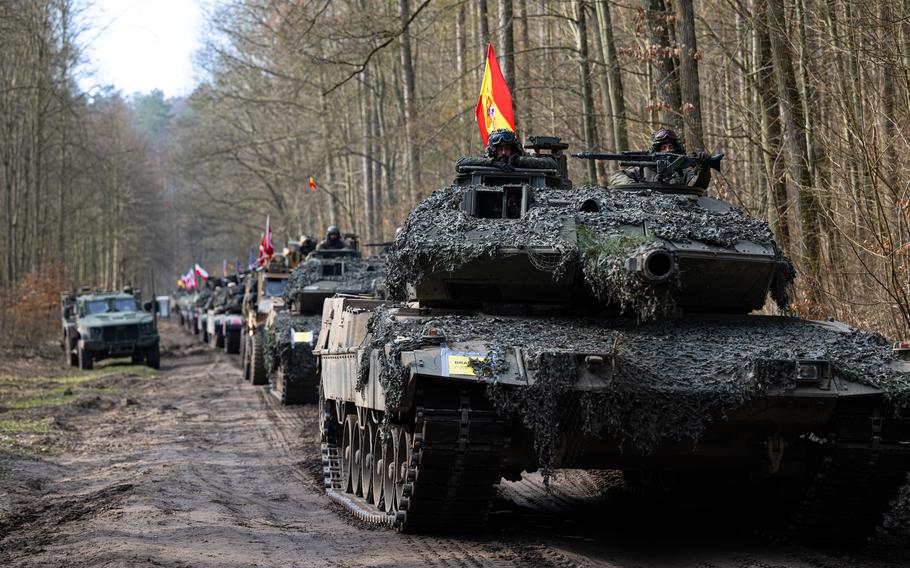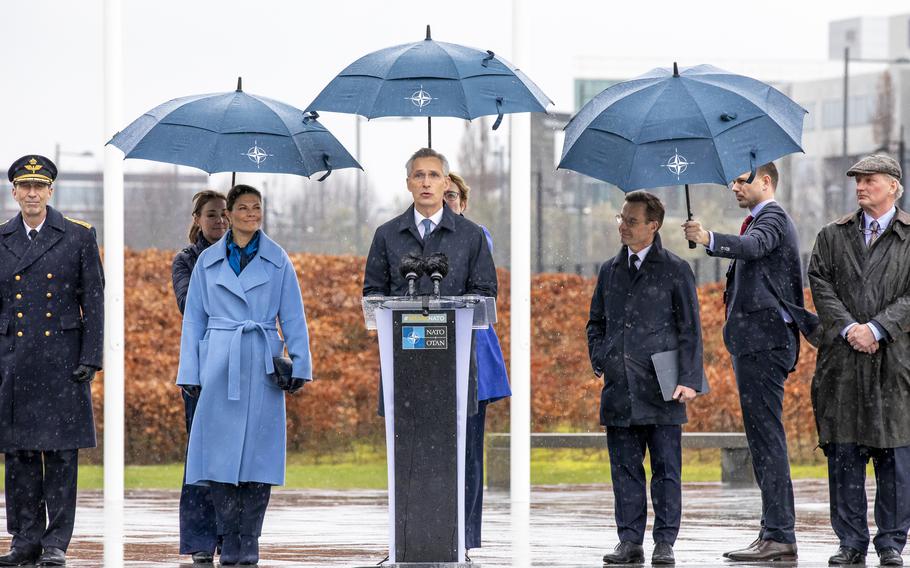
NATO forces including Spanish, Polish, French and American tanks, as well as other military vehicles from Turkey and Slovakia, line up before boarding amphibious rigs to cross the Vistula River during an exercise near Gniew, Poland, March 4, 2024. (Jackie Faye Burton/U.S. European Command)
STUTTGART, Germany — A large majority of people living in NATO countries expect allies to come to their defense if their own nation is attacked, but fewer want their forces to defend others, new alliance polling released Thursday shows.
The findings were part of NATO’s annual report, which showed strong public support for the alliance in general. But it also revealed mixed feelings about the bloc’s fundamental creed: that an attack on one member is an attack on all.
Overall, 73% of those polled across the alliance agreed that their country should be defended by other NATO states if attacked. That figure dropped to 61% when people were asked whether they supported their own country coming to the defense of another member.
Sentiments varied among member countries, with eastern flank states such as Poland, Estonia and Lithuania being among the most willing to come to the defense of another. Those countries also had high expectations that others should defend them.
Meanwhile, only 33% of Montenegrins said they were willing to fight for an ally, the lowest among the 32-nation alliance.

NATO Secretary-General Jens Stoltenberg gives remarks March 11, 2024, in Brussels, during a ceremony celebrating the accession of Sweden into the defense alliance. NATO’s annual report released Thursday showed a large majority expected their countries to be defended if attacked, but smaller numbers expected their countries to defend others under the same circumstances. (NATO)
In the United States, NATO’s most powerful member and the linchpin of the alliance’s concept of collective defense, 60% of those polled supported American defense of a NATO member under attack. And 70% thought they should be helped by allies if the tables were turned.
Meanwhile, 59% of Germans polled said they would support defending an ally under attack, compared with 73% who expected their country to be defended under similar circumstances.
Still, a large majority of members, 75%, considered NATO important to the future security of their country.
The findings suggest that while a majority of citizens hold NATO in high regard, they could be confused or unaware of the alliance’s purpose, given the degree of ambivalence about fighting for one another.
The polling also showed that allies are willing to take steps to bolster security, with 77% of respondents showing support for maintaining or increasing defense spending.
The NATO polling was done in November and December, with a margin of error of 3 percentage points.